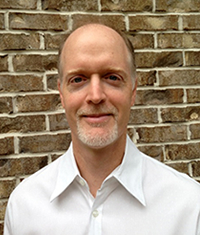Find a CBT Therapist
Search through our directory of local clinicians.
Norman Schmidt

Mentor Spotlight
Norman B. (Brad) Schmidt, Ph.D., is Distinguished Research Professor in the department of Psychology at the Florida State University. He also directs the Anxiety and Behavioral Health Clinic, a clinical research center focused on the development and evaluation of state-of-the-art treatments for individuals suffering from anxiety-related problems. The major focus of his research has been on the nature, causes, treatment, and prevention of anxiety psychopathology as well as related conditions such as substance use, mood disorders, and suicide. He has published approximately 500 peer-reviewed publications, books, and book chapters, and his work has been funded by the National Institutes of Health, the Department of Defense, the Obsessive Compulsive Foundation, and the American Society for Suicide Prevention. He is a Fellow of the American Psychological Association (APA), the Association for Psychological Science (APS) and the Association for Behavioral and Cognitive Therapies (ABCT). Among his honors and awards, he received the APA Distinguished Scientific Award for Early Career Contribution to Psychology.
1. How long have you been a member of ABCT?
I joined as a graduate student – so it’s been over 30 years.
2. What type of mentor do you aspire to be? Do you have a mentorship philosophy?
I try to be flexible, recognizing that students have different strengths and skill sets. I don’t micromanage and try to foster independent, critical thinking. I feel like my role is harnessing the student’s interests versus imposing my own agenda to help them develop a program of research. I’m also pragmatic and give a great deal of thought to what will prepare my students to be competitive on the job market.
3. What practices do you engage in that foster your mentorship style?
I usually allow students to try to figure things out as best they can, but then apply more guidance as needed over time. We do regular “CV reviews” to take a broad picture of where things are and what we want to strive for each semester. I try to set clear expectations about publication frequency, quality, as well as grantsmanship.
4. What are your strengths as a mentor?
I think I have pretty clear ideas about how to build the sorts of skills sets necessary for success in this field. I give students clear, critical feedback and don’t hold back if I perceive there are problems or areas they might need to work on. The bonus is that I am generally a pretty reasonable person.
5. Whom do you perceive to be your most influential mentors? Describe the main lessons that you have learned from your mentors.
Mike Telch was my advisor in grad school, and he basically taught me how to write a journal article. Mike also showed me how to develop studies that could be impactful and answer important questions. Although they were not formal mentors, Rich McNally and Dave Barlow were also influential in terms of my thinking about psychopathology as well as intervention.
6. What do you tend to look for in potential mentees?
I think an excitement and willingness to devote time (I hate to say work hard because hopefully it doesn’t feel like work) to their research is critical. A capacity to be resilient in dealing with the criticism and rejection that is inherent in the field is also very important.
7. What advice would you give to other professionals in your field who are starting out as mentors?
It’s a small world, treat your advisees (and colleagues) reasonably.
8. What do you enjoy doing for fun/relaxation?
A pretty ideal day for me would be going to the gym or trail running for an hour or so. Spending time outdoors with our dogs. Then wrapping things up by cooking a gourmet dinner with some great wine or beer and enjoying with family and friends.
